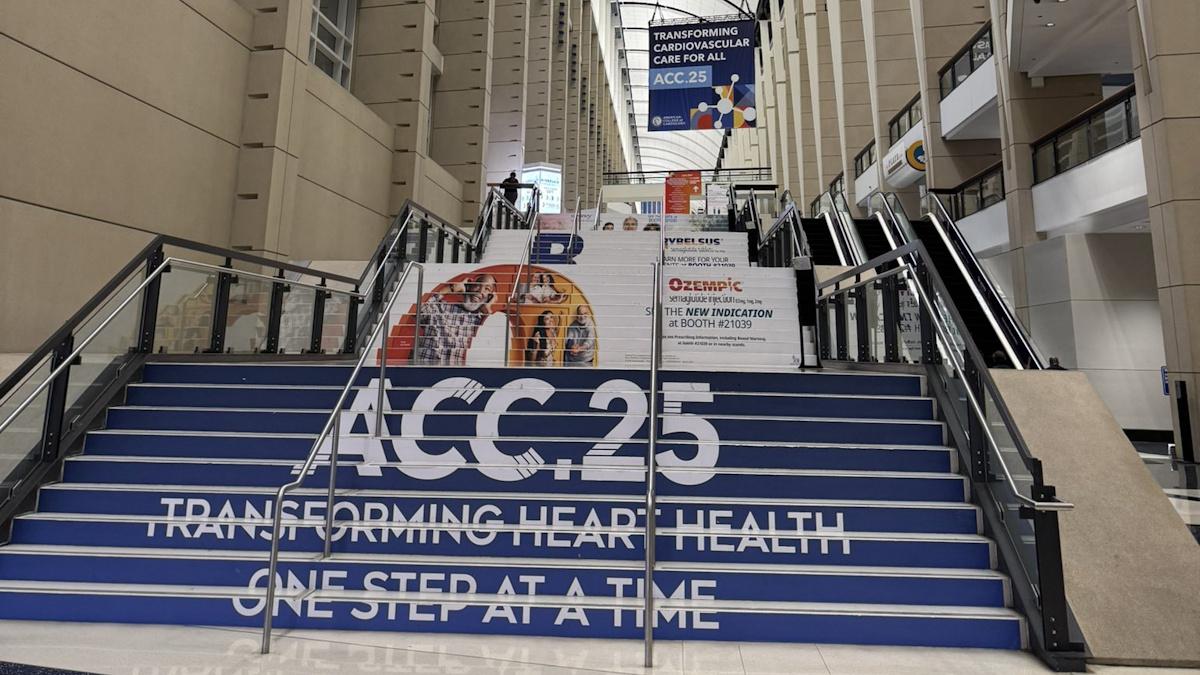ACC25: Positive results with Lilly's Lp(a)-lowering drug

Eli Lilly's gene-silencing drug lepodisiran has been shown to reduce lipoprotein(a) levels by more than 90% for at least six months with a single injection in a phase 2 trial, reinforcing its credentials as a potential new therapy for cardiovascular diseases.
The data from the ALPACA trial – reported at the American College of Cardiology (ACC) annual meeting in Chicago and simultaneously published in the New England Journal of Medicine – showed that the small interfering RNA (siRNA) therapy reduced Lp(a) levels by an average of 93.9% over the 60 to 180-day period after treatment with the highest tested dose of 400mg.
Like LDL-cholesterol, elevated Lp(a) is recognised as an independent genetic risk factor for coronary artery disease, heart attack, stroke, peripheral arterial disease, and aortic stenosis, potentially involved in around half of all cases. However, unlike LDL-cholesterol, there are currently no drugs approved that can reduce levels of the lipoprotein in the body.
The ALPACA data revealed a clear dose-response result with lepodisiran, with a 16mg dose reducing Lp(a) by 40.8% and 96mg leading to a drop of 75.2% after one dose, according to Steve Nissen of The Cleveland Clinic in the US, who presented the data at ACC.
"These significant and sustained Lp(a) reductions are encouraging and suggest that siRNA approaches like lepodisiran could potentially offer durable benefits with long-term dosing," he said.
"In the absence of effective therapeutic options, the global health burden of elevated [Lp(a)] concentrations makes development of these therapies an important research priority," he added.
The results from the second dose in the study – which will follow patients for 18 months – are not yet available, although, a group of patients who received a 400mg dose at both baseline and day 180 saw a 94.8% reduction in average Lp(a) levels over the day 30 to 360 period.
Among the ALPACA participants, 68% were at high risk of a cardiovascular event, 48% had coronary artery disease, and 31% had a previous myocardial infarction. A majority were on concomitant medication to reduce LDL-cholesterol, with 74% on statins, 33% on ezetimibe, and 6% on PCSK9 inhibitors.
At one year, Lp(a) levels remained 91% below baseline while at 18 months they were 74% lower, suggesting that a single dose of the siRNA per year could be feasible.
Lepodisiran is one of a clutch of Lp(a)-directed therapies coming through clinical development and is in phase 3 trials, with Lilly also working on a once-daily oral candidate – called muvalaplin – which is in phase 2.
Other rivals in late-stage testing include Novartis/Ionis' pelacarsen in phase 3, which is dosed by subcutaneous injection once per month, and Amgen's olpasiran which is injected every three months.












